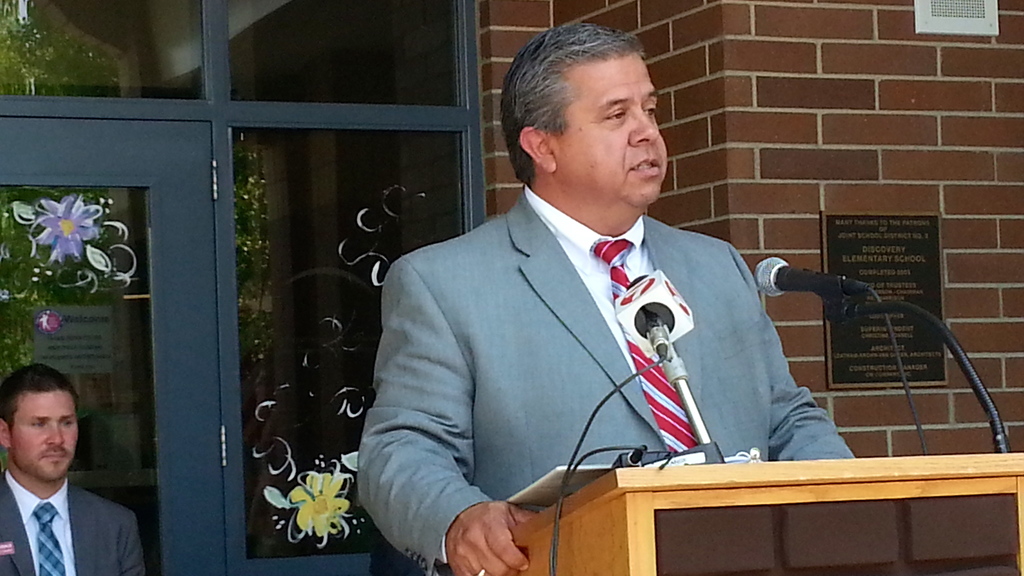(UPDATED, 1:30 p.m., with statement from state superintendent Tom Luna.)
A multistate exam designed to support the new Idaho Core Standards is a form of “extreme testing,” and it should be scrapped, state Sen. Steven Thayn said Tuesday.

Thayn, R-Emmett, said the Smarter Balanced Assessment Consortium exam could be replaced by other assessments. Options could include the Scholastic Aptitude Test taken by most Idaho 11th graders, and the Idaho Standards Achievement Test that the state is phasing out in favor of the Common Core-based SBAC exam.
In a two-page news release Tuesday, Thayn said Common Core standards supporters are pressing on without getting public buy-in — comparing it to the flawed process surrounding the 2011 Students Come First laws, later repealed by voters.
“This time I will listen,” Thayn said.
Idaho is one of 23 states helping to write the SBAC exam, and has been closely involved in its development. Luci Willits, Superintendent of Public Instruction Tom Luna’s chief of staff, sites on the SBAC’s seven-member executive committee.
The State Department of Education plans to field test the exam this spring. The tests won’t count until the spring of 2015, at which point the results will be used to update school five-star ratings.
With the advent of the new core standards in mathematics and English language arts, Education Department officials contend that the state needs to move from multiple-choice exams to the more rigorous SBAC assessment.
Thayn listed myriad concerns with the SBAC exam, including:
- Time demands. The SBAC exam is expected to take eight hours for high school students, and about seven hours for elementary school students.
- Cost. The SBAC exam will require some hand-grading, which could drive up costs.
- Data. Thayn contends that the SBAC protocol allows the state to pass along individual student data to the federal government.
- A shift to multistate assessment. “SBAC shifts decisions from state level to a multi-state level and will further alienate parents and make it harder for legislators, teachers, and parents to impact public policy threatening state control over a wide range of education issues.”
- Content. “The Idaho State Department of Education is not able to guarantee that pornographic passages or agenda-driven questions will not be on the SBAC.”

On Tuesday, Luna defended the shift away from multiple-choice assessments. On Tuesday afternoon, he sent legislators a point-by-point response to Thayn’s creiticisms.
“The points outlined in Sen. Thayn’s press release are not factual,” Luna said in a statement. “Idaho is playing a lead role in the development of this new assessment.”
The Senate Education Committee will have a “conversation” about the SBAC exam, Chairman John Goedde said Tuesday. But Goedde, R-Coeur d’Alene, said it would cost Idaho tens of millions of dollars to replicate the exam.
“Idaho cannot afford to develop a test of the quality of SBAC on its own,” he said.
Thayn isn’t alone in questioning the SBAC assessment.
Treasure Valley school district superintendents have asked the state to put the exam on hold, and met with Luna in December to air their concerns.
The flap over assessments comes as schools are just beginning to teach to the new Idaho Core Standards — and just as the 2014 Legislature could be poised to take a second look at the standards. The Legislature endorsed the standards in 2011 — Thayn was on the House Education Committee that backed them — but he has hinted that the state might want to repeal the standards.
The Senate and House education committees have scheduled a Jan. 22 question-and-answer session on Idaho Core Standards.
